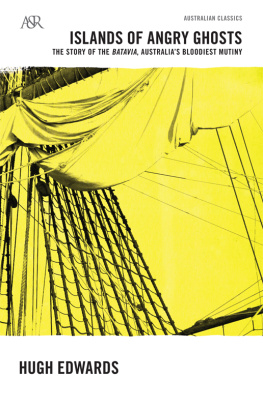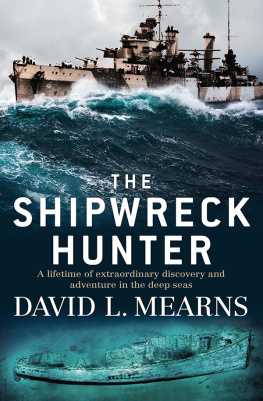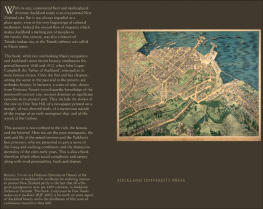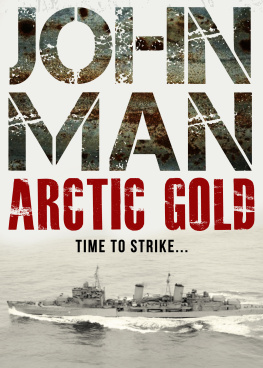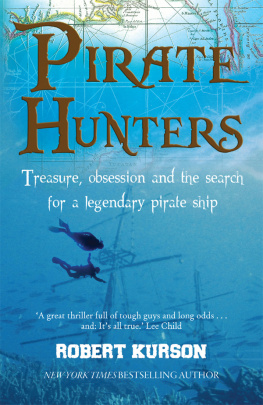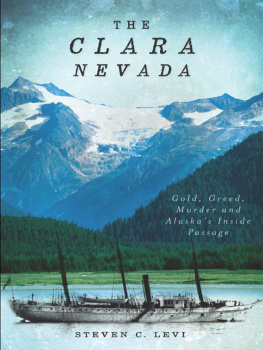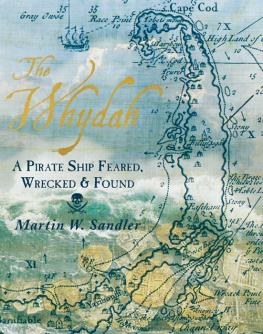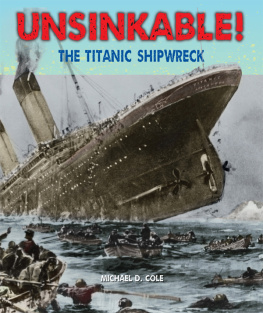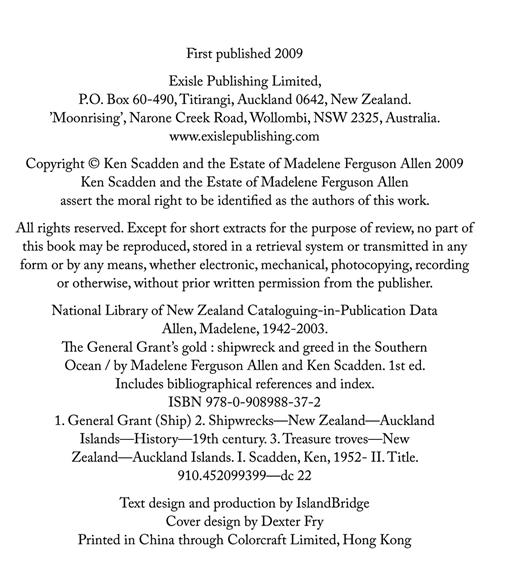Madelene Ferguson - The General Grants Gold: Shipwreck and greed in the Southern Ocean
Here you can read online Madelene Ferguson - The General Grants Gold: Shipwreck and greed in the Southern Ocean full text of the book (entire story) in english for free. Download pdf and epub, get meaning, cover and reviews about this ebook. year: 2009, publisher: Exisle Publishing Pty Ltd, genre: Science fiction. Description of the work, (preface) as well as reviews are available. Best literature library LitArk.com created for fans of good reading and offers a wide selection of genres:
Romance novel
Science fiction
Adventure
Detective
Science
History
Home and family
Prose
Art
Politics
Computer
Non-fiction
Religion
Business
Children
Humor
Choose a favorite category and find really read worthwhile books. Enjoy immersion in the world of imagination, feel the emotions of the characters or learn something new for yourself, make an fascinating discovery.

- Book:The General Grants Gold: Shipwreck and greed in the Southern Ocean
- Author:
- Publisher:Exisle Publishing Pty Ltd
- Genre:
- Year:2009
- Rating:5 / 5
- Favourites:Add to favourites
- Your mark:
The General Grants Gold: Shipwreck and greed in the Southern Ocean: summary, description and annotation
We offer to read an annotation, description, summary or preface (depends on what the author of the book "The General Grants Gold: Shipwreck and greed in the Southern Ocean" wrote himself). If you haven't found the necessary information about the book — write in the comments, we will try to find it.
The wreck in 1866 of the General Grant in the desolate sub-Antarctic Auckland Islands is one of the worlds great nautical mysteries, a story that still tantalises and thrills. When the ship was crushed in a cave beneath a sheer cliff face, a few crew members and a handful of passengers managed to escape in a lifeboat. For more than two years they lived a hand-to-mouth existence on a nearby island before they were rescued. This story is extraordinary in itself, but soon compelling legends spread that the ship had sunk with a fabulous hoard of gold from the Victoria goldfields. For almost 140 years, expeditions and bounty hunters have searched for the ship and her elusive cargo. In the relentless seas of the Auckland Islands, it has been a soul-destroying endeavour. Locating the vessel has been difficult enough; finding the gold has proved impossible.In this book Madelene Ferguson Allen and Ken Scadden tell the full story of the voyage, the shipwreck, the plight of the castaways and the search for the gold. At this distance in time, separating the facts from the legends is difficult, but the authors have scrupulously researched the events of the shipwreck and examined every subsequent search for the gold. The story is more remarkable than fiction, a tale of heroes and cads, heartbreak and loss, hope and despair, hunger and greed. As it has bewitched so many in the past, so it will haunt you long after the last page is turned.The wreck in 1866 of the General Grant in the desolate sub-Antarctic Auckland Islands is one of the worlds great nautical mysteries, a story that still tantalises and thrills. When the ship was crushed in a cave beneath a sheer cliff face, a few crew members and a handful of passengers managed to escape in a lifeboat. For more than two years they lived a hand-to-mouth existence on a nearby island before they were rescued. This story is extraordinary in itself, but soon compelling legends spread that the ship had sunk with a fabulous hoard of gold from the Victoria goldfields. For almost 140 years, expeditions and bounty hunters have searched for the ship and her elusive cargo. In the relentless seas of the Auckland Islands, it has been a soul-destroying endeavour. Locating the vessel has been difficult enough; finding the gold has proved impossible.In this book Madelene Ferguson Allen and Ken Scadden tell the full story of the voyage, the shipwreck, the plight of the castaways and the search for the gold. At this distance in time, separating the facts from the legends is difficult, but the authors have scrupulously researched the events of the shipwreck and examined every subsequent search for the gold. The story is more remarkable than fiction, a tale of heroes and cads, heartbreak and loss, hope and despair, hunger and greed. As it has bewitched so many in the past, so it will haunt you long after the last page is turned.
Madelene Ferguson: author's other books
Who wrote The General Grants Gold: Shipwreck and greed in the Southern Ocean? Find out the surname, the name of the author of the book and a list of all author's works by series.

